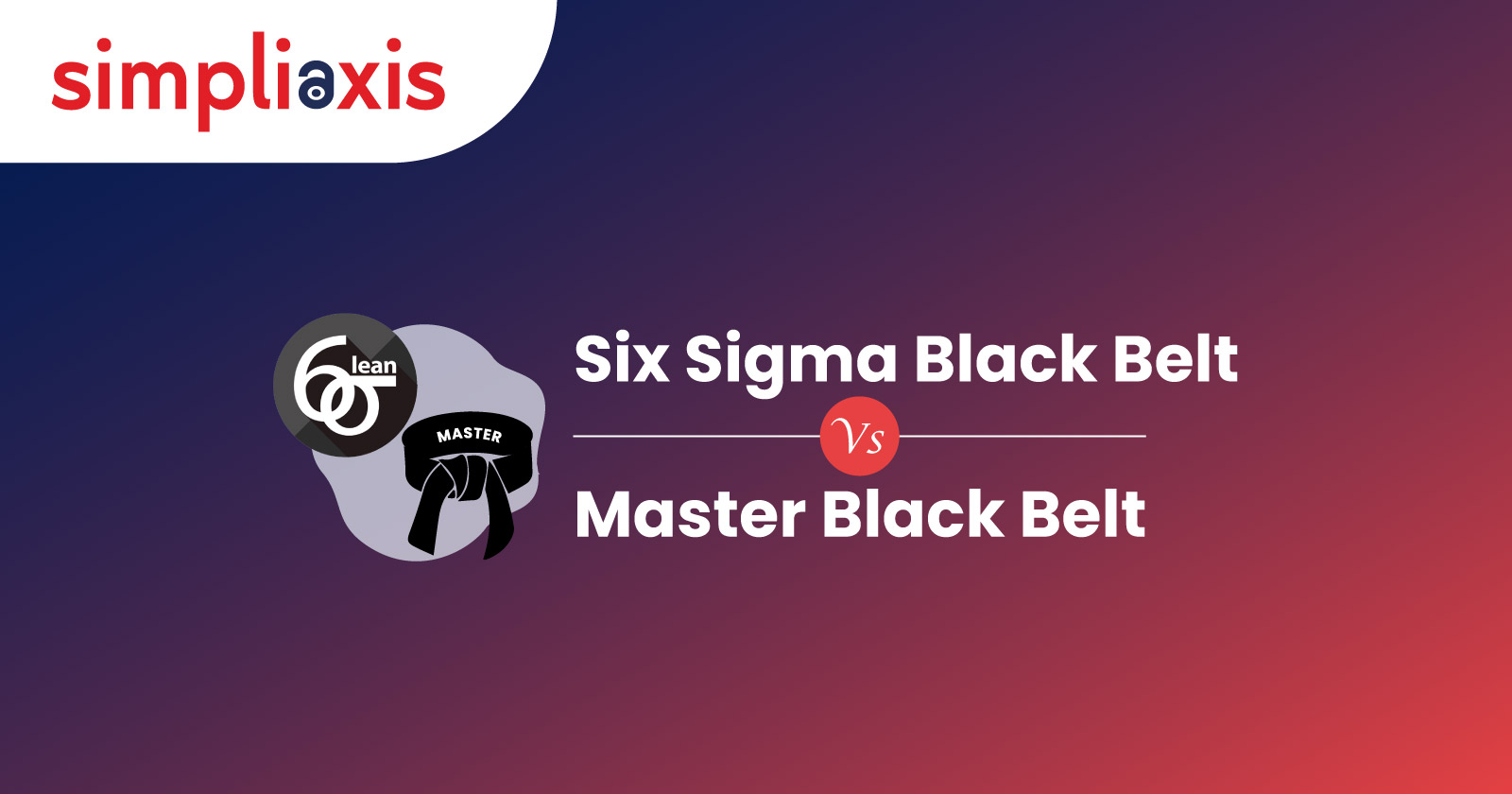Introduction :-
Black Belts and Master Black Belts hold important Lean Six Sigma Development and Implementation positions. Most organizations today understand the importance of eliminating defects, so they wish to follow the Lean Six Sigma methodology. This data-driven technique promotes ongoing process improvement with special attention to waste, variation, and defect elimination.
A long-established belt system evaluates professionals' proficiency in Lean Six Sigma. The ranking system used in Six Sigma has been designed following the system used in martial arts. Each color in this ranking system denotes the level of expertise in Six Sigma practices that the certification holder has achieved in Six Sigma strategies, techniques, and Six Sigma tools.
When the first three belts are colored white, yellow, and green, the final two belts are black and master black belts. Both master black belt and black belt indicate the mastery of professionals in Six Sigma practices and techniques. Nevertheless, there are differences between these two. Before the comparison of master black belt vs. black belt, let us get a general overview of these two levels of Six Sigma:
Six Sigma Black Belt – A Basic Understanding:
A person with Six Sigma Black Belt certification is a professional who will be able to explain the principles and philosophies of Six Sigma. Also, this professional can support tools and systems.
A person with black belt certification in Six Sigma should be in a position to lead the team. He should be in a position to understand the dynamics of the team. Also, he should be able to comprehend the dynamics of the team. Further, this professional should be able to assign roles and responsibilities to team members.
Learn more about :Everything You Need To Know About Six Sigma Black Belt
Master Black Belt – A Basic Understanding:
Master black belts are professionals within the organization responsible for teaching yellow, green, and black belts the techniques of Six Sigma and organizing Six Sigma projects within an organization that follows the Six Sigma approach.
A person with Master Black Belt certification is an expert in the entire Six Sigma Body of Knowledge. These professionals show their expertise in Six Sigma principles by executing DMAIC and DMADV projects. A person would be certified a Master Black Belt in Lean Six Sigma practices only after he demonstrates his thorough expertise in both practices and philosophies.
When a person has this certification, it indicates his expertise in grasping team dynamics and team leadership and the ability to allocate team members with appropriate roles profitably. Further, this certification indicates a master-level understanding of the DMAIC model per knowledge of lean enterprise concepts and Six Sigma principles and skills to swiftly spot activities that do not add any value.
With a fundamental knowledge of these two belts, it is time to get into the Six Sigma black belt vs master black belt comparison. Here is a table to show the comparison of these two:
| S. No | Point of Comparison | Black Belt | Master Black Belt |
| 1. | Organizational Order |
|
|
| 2. | Key Roles |
|
|
| 3. | Key Responsibilities |
|
|
| 4. | Benefits to the Organization |
|
|
| 5. | Personal benefits |
|
|
| 6. | Reporting Pattern |
|
|
Also, Check:
Why Take Lean Six Sigma Training?
Six Sigma Black Belt Training:
When you work for an organization following the Six Sigma approach or if you lead such an organization, taking Six Sigma Black Belt training can be beneficial in the following ways:
1. You can create an ongoing improvement culture in your organization.
2. As a Certified Six Sigma Black Belt, you can make your team service-oriented.
3. You can become efficient in solving more complex issues.
4. With the course, you can improve your leadership skills.
5. You can deliver an improvement project during your training session. This session will be of great help in improving your organization's projects.
Six Sigma Master Black Belt:
With Six Sigma Master Black Belt training, you can:
1. Gain expertise in advanced data-analytical and problem-solving tools. This expertise will help you carry out the best data analysis, and you can solve issues as they arise to ensure project success.
2. Achieve facilitation and training skills
3. With this course, you will gain confidence to lead and mentor complex cross-functional projects
4. You can plan and establish organizational dashboards and metrics
In any organization, Master Black Belts are experts in strategic deployment. They play a major role in supporting and promoting improvement activities in all areas of the organization, including customers and suppliers.
Conclusion:
Even though from this Six Sigma black belt vs. master black belt comparison, you might have understood the difference between these two roles, both hold considerable value in any organization. Taking these two positions is not only helpful for the personal development of a professional but will also help organizations as a whole. Simpliaxis offersSix Sigma Black Belt training and Master Black Belt training to equip professionals with the skills and expertise needed to excel in these roles. With our comprehensive courses, individuals can develop proficiency in advanced problem-solving techniques, leadership, facilitation, and strategic deployment. By investing in Six Sigma training, organizations empower their employees to drive continuous improvement, optimize processes, and achieve operational excellence.






















